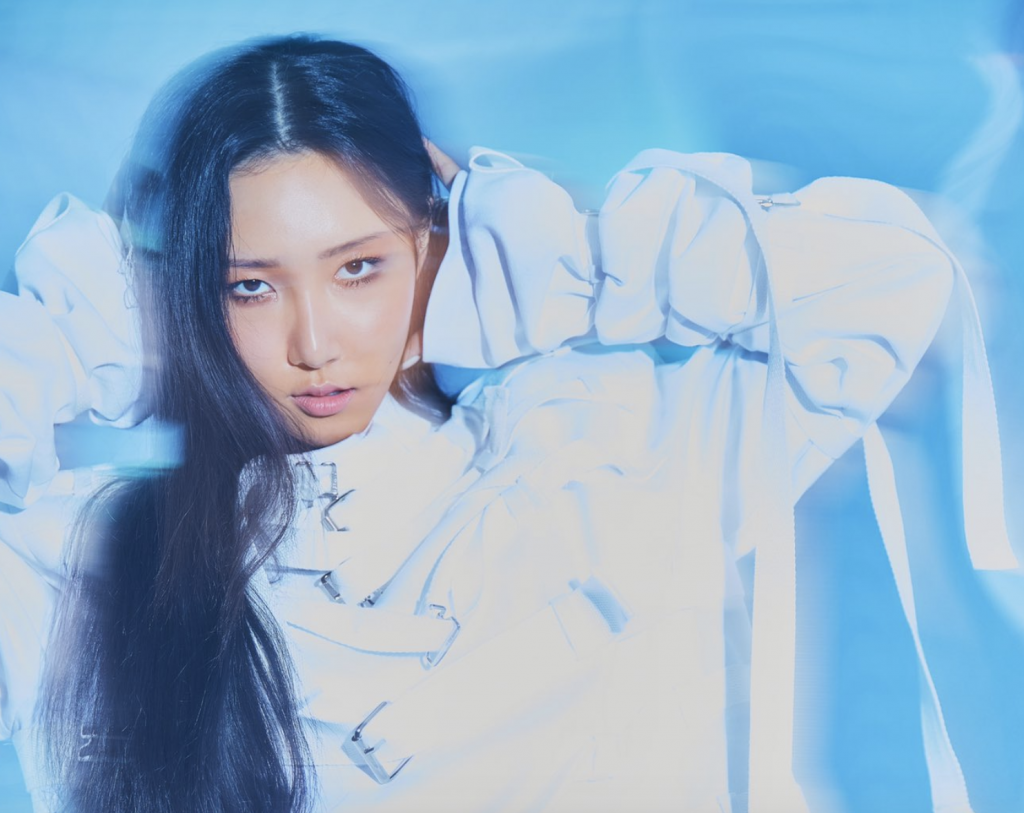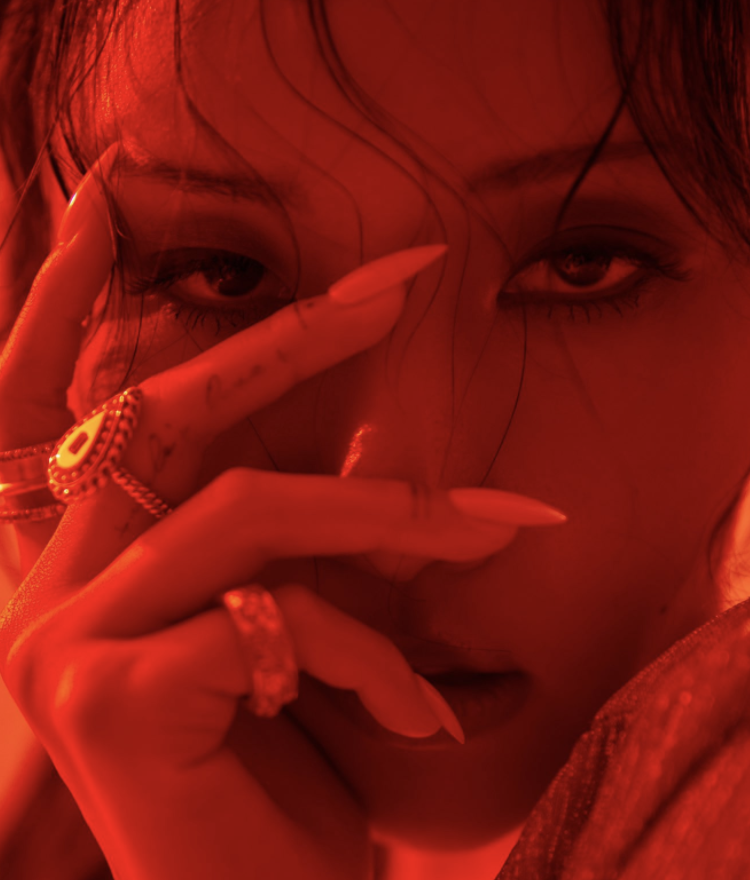
I’ll be honest: I don’t love Mamamoo. That’s not to say I don’t appreciate them — I’ll be the first to attest to their vocal prowess and stunning charisma, and I certainly commend their message of self-love and confidence. But I’ve just never found their music to match my personal taste. So when Hwasa announced her first solo EP, I had low expectations.
But wow. I’m glad to report that with María, Hwasa has proven me to be massively, colossally, stunningly wrong. Each and every song from María is infused with a sense of honesty. It’s almost as if María isn’t a collection of songs, but rather pages taken straight from Hwasa’s diary.
The album opens with “Intro: Nobody else,” a wonderful encapsulation of the album as a whole. This song is slow yet commanding, starting with filtered synths that give way to drawn-out piano chords and Hwasa’s vocals. As the track builds, resonant percussion creates a sense of propulsion. Then the instrumental explodes into a busy synth beat, even as Hwasa’s vocals remain stately and elongated.

The all-English lyrics are as gorgeous as the production: Hwasa implores, “Why don’t you love yourself?” Hwasa is an icon of feminine confidence, yet these lyrics peel away that public persona and instead expose her vulnerable, questioning side. The effect: this album intro feels incredibly personal and honest.
Additionally, “Intro: Nobody else” is notable because, despite its heavy dependence on piano, it never collapses into generic balladry. Instead, the song maintains a sense of lyrical candor without sacrificing musical identity.
Similarly, “Why” also incorporates a heaping dose of piano without turning into a drippy ballad. The song is very actually similar to “Intro: Nobody else” — it too starts with lush piano and echoing percussion. Then, just like the album intro, “Why” shifts into an EDM-style bass-backed chorus. The verses then return to slow piano.
Lyrically, the two songs share a sense of sadness and confusion. Just as Hwasa sang “Why don’t you love yourself” earlier, she now wonders, “Why don’t you love me?” The song speaks of a one-sided romance:

To reach you
I’ve come a long way
But to you it’s easy love
“LMM” continues María’s trend of creative, interesting uses of piano. “LMM” possesses the spirit of a worship song, with its flowing ocean of sounds. There’s plenty of space for Hwasa’s ever-arresting vocals to breathe and stretch out. “LMM” is pensive and tender, pulsing with a sense of loss and suffocation. The lyrics are abstract, seemingly inspired by nature:
Like the world is going to end
The sun sets
Into the long darkness
It’s hard to parse any specific meaning from “LMM,” but perhaps this is the song’s charm: it presents an oasis of conflicted emotions, expressing inexplicable pain. Since “LMM” is so open to interpretation, it has incredible potential to appeal to a range of listeners.
The title track “Maria” (I’m not sure why, but the i here isn’t accented the way it is in the album name) has even more interesting lyrics. At first, “Maria” seems to be in the same vein as “Hip,” a bold anthem of confidence, since it opens with Hwasa expressing frustration at her haters. Yet upon closer inspection, “Maria” is a far more vulnerable take on self-love. Hwasa sings:
Don’t torture yourself
Oh Maria, I’m saying this for you
Why are you trying so hard
You’re already beautiful

Instead of simply brushing off hate, Hwasa opens up about the effect of malicious words, and also offers comfort to herself. Her clever wordplay (“Maria” sounds a lot like the Korean for “I’m saying this”) doesn’t hurt, either. The song’s nuanced message feels very honest — as if Hwasa has left behind simple declarations of confidence to show us her true self. We’re no longer seeing Hwasa, the brash queen. Instead, we finally see Maria — the girl who hurts and suffers.
Sadly, this same sense of uniqueness does not extend to the production. Although the chorus is strangely memorable, “Maria” mostly consists of an uninspiring blend of tired trap beats. The Latin-inspired dance break is very jarring, as it forces a strange lapse in the song’s energy.
Like “Maria,” “I’m bad too” has great lyrics but subpar production. “I’m bad too” is a repetitive duet with rapper DPR Live with truly awful trap-inspired production. It’s trendy in the worst sense of the word, with no sense of musical personality. Even the lyrics, an interesting take on youthful playfulness and rebelliousness, fail to salvage the hot mess of an instrumental. In the words of Hwasa and DPR Live, “It’s all ruined anyway.”
In sharp contrast to “Maria” and “I’m bad too,” the b-side “Kidding” has generic lyrics but engaging production. This song speaks of Hwasa’s lover cheating on her. The lyrics aren’t anything special, but all is forgiven because wow — that instrumental! “Kidding” opens with a lilting combination of chirpy singing and thrumming guitar; it’s a creepy, almost doll-like effect. This intro is very interesting, and it’s almost reminiscent of f(x). Then, “Kidding” dramatically shifts gears. The song relies on a funky, minimal bassline and plenty of attitude-infused rap. “Kidding” also incorporates a jazz piano sequence — an unusual sound, within the context of K-pop. This song is creative and fresh: a definite album standout.
María has its flaws, but ultimately it stands as a powerful, cathartic testament to Hwasa’s burgeoning artistry and charisma. It breaks with her established image, showcasing an honest, vulnerable side. As a non-fan, even I can’t wait to see where Hwasa goes from here.
(YouTube, Images via RBW Entertainment)


